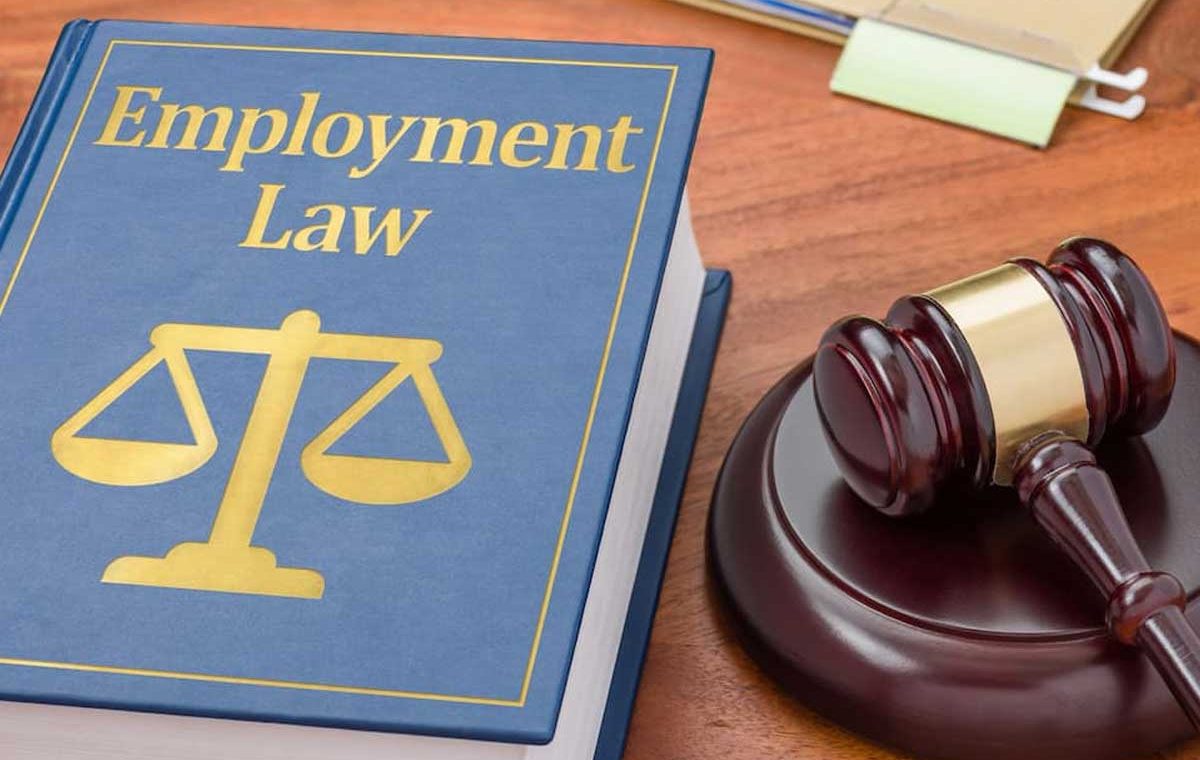

Learn about employment and labor law, and how it can influence your work status. Visit employment law attorney, Kenneth Udoibok’s premier online blog: Employment Law Attorney
Kenneth Ubong Udoibok, P.A. devotes a significant amount of time to employment law matters. From negotiating executive contracts to resolving workplace disputes in litigation, Kenneth Udoibok, P.A. brings decades of experience to the table with the highest caliber of counseling and representation. Mr. Udoibok represents individuals who have claims against their employers – prospective, current, or former. Some of these claims include:
Kenneth Udoibok has over 28 years of trial experience and is an effective and tenacious litigator–his victories speak for themselves. He has earned the respect of employers and the legal community throughout the state of Minnesota. Kenneth is known as a tireless champion for the causes of employees and one of the best employment discrimination lawyers in Minnesota. Kenneth Udoibok has been publicly commended by judges for his effective representation of his clients as an employment law attorney.
Kenneth Udoibok, P.A. is committed to you. Our goal is to make you feel comfortable taking a stand against egregious employment practices. We are selective of the cases we take so that we can devote the time it takes for your unique circumstance.
At-Will Employment
Employers are generally allowed to pay, promote, hire and fire employees as they wish. That is the nature of employment at-will laws. However, if any of these decisions are based on age, race, national origin, heritage, ethnicity, sexual orientation, disability, gender, pregnancy, religion or any other discriminatory factor, the employer may be violating the employee’s rights under Title VII of the Civil Rights Act of 1964, as well as various Minnesota state laws. That’s where Kenneth Udoibok comes in. Kenneth Ubong Udoibok, P.A., provides skilled and experienced representation for those who have been discriminated against.
There is often a variety of indicators that would suggest you are a victim of discrimination. These include sudden and intense scrutiny; retention of younger, inexperienced coworkers over older workers; a small, one-or-two person “reduction in force”; punishing the victim; lack of thorough investigation or lack of interest if a complaint is made; and manipulation of the promotion or hiring process.
If you feel your employer has discriminated against you, please contact Kenneth Udoibok, P.A today.
Wrongful Termination
Wrongful termination refers to any non-voluntary termination for an improper reason. In Minnesota, there are a multitude of improper reasons that can trigger a wrongful termination. Most prominent among these are retaliation for certain complaints and discrimination based upon race, color, religion, national origin, sex, sexual orientation, genetic information, ancestry, age, disability, pregnancy or handicap. State and federal laws protect workers from termination in retaliation for whistle-blowing or for making legal claims against the employer. Workers are also protected from being fired for making complaints about workplace safety, for refusing to work in unsafe conditions, or for joining with other employees to improve wages or working conditions. Employees are also protected against termination by public policy. The following reasons for termination would likely be deemed to violate public policy:
- Complaining about or reporting employer’s illegal conduct.
- Refusing to commit an illegal act on behalf of the employer, such as perjury.
- Fulfilling jury service obligations.
- Cooperating with law enforcement.
If you feel you have been wrongfully terminated, contact Kenneth Udoibok today.
Sexual Harassment
We know that freedom from sexual harassment is covered under federal law by Title VII of the Civil Rights Act of 1964 and at the state level under the Minnesota Human Rights Act. Both federal and state laws define sexual harassment as actions that can apply to either males or females in situations involving the same sex or opposite sex. Sexual harassment under federal law is not limited to the person being harassed but can be anyone affected by the offensive conduct. As your sexual harassment lawyer, Kenneth Ubong Udoibok, P.A. has the experience, education, dedication and record of success to help you win a trial, obtain a great settlement or defend against a law suit.
Kenneth Udoibok has been a sexual harassment lawyer in Minnesota for more than 28 years. At Kenneth Ubong Udoibok, P.A., we understand that sexual harassment is a traumatic experience and that you do not always feel comfortable talking about it. Our firm is sensitive and understanding, and treats you with compassion, respect, and dignity. Coming forward with a sexual harassment claim is not easy, so we are here to guide you throughout the legal process. Sexual harassment affects all gender identities alike and includes a variety of words and actions such as:
- Touching someone inappropriately
- Promising job advancement in exchange for sexual or romantic activities
- Engaging in uninvited “x-rated” conversations
- Gesturing in a provocative way
Each of these examples becomes a much stronger case if you reported the harassment to management and the behavior continued. If any of these examples sound familiar, call Kenneth Udoibok today for an initial consultation.
Do you need more information?
If you would like more information about our capabilities or receive a case evaluation, please schedule an initial attorney consultation by completing our online form or calling 612-808-6031. The sooner Kenneth Ubong Udoibok, P.A. is involved, the sooner you benefit and avoid pitfalls in your case.
What is Employment Law?
Employment law, also known as labor law, encompasses the legal rights and responsibilities that govern the employer-employee relationship. It covers a wide range of issues, including hiring, termination, workplace safety, discrimination, wage and hour regulations, and employee benefits.
Several federal laws protect employees in the United States, including:
- Title VII of the Civil Rights Act of 1964: Prohibits discrimination on the basis of race, color, religion, sex, or national origin.
- The Fair Labor Standards Act (FLSA): Sets standards for minimum wage, overtime pay, and child labor.
- The Family and Medical Leave Act (FMLA): Grants eligible employees the right to take unpaid leave for specified family or medical reasons.
- The Americans with Disabilities Act (ADA): Prohibits discrimination against individuals with disabilities and requires reasonable accommodations in the workplace.
- The Age Discrimination in Employment Act (ADEA): Protects individuals over the age of 40 from age-based discrimination.
- The Occupational Safety and Health Act (OSHA): Establishes safety and health standards for workplaces.
"At-will employment" is a default employment relationship in most U.S. states, where either the employer or the employee can terminate the employment relationship at any time, for any reason (with some exceptions), and without advance notice. While this provides flexibility, it also means that employees can be fired without cause, and employers can terminate employees without having to justify their decision.
Workplace discrimination occurs when an employee is treated unfairly or subjected to adverse employment actions based on characteristics such as race, color, religion, sex, national origin, age, disability, or other protected factors. Employees who believe they have experienced discrimination can take several steps, including:
- Reporting the discrimination to their employer or HR department.
- Filing a complaint with a relevant government agency, such as the Equal Employment Opportunity Commission (EEOC).
- Consulting an attorney to explore legal remedies, such as filing a lawsuit against the employer.
Under the Fair Labor Standards Act (FLSA), as of my last knowledge update in September 2021, the federal minimum wage was $7.25 per hour. Employees who work more than 40 hours in a workweek are generally entitled to overtime pay, which is at least one-and-a-half times their regular hourly rate. However, it's important to note that minimum wage and overtime requirements can vary by state, and some states have higher minimum wage rates and more stringent overtime rules than the federal law. Minnesota's minimum wage is increase to $10.85 per hour on Jan. 1, 2024 for large employers (over $500,000 in gross revenue) and $8.85 an hour for small employers (under $500,000 in gross revenue).